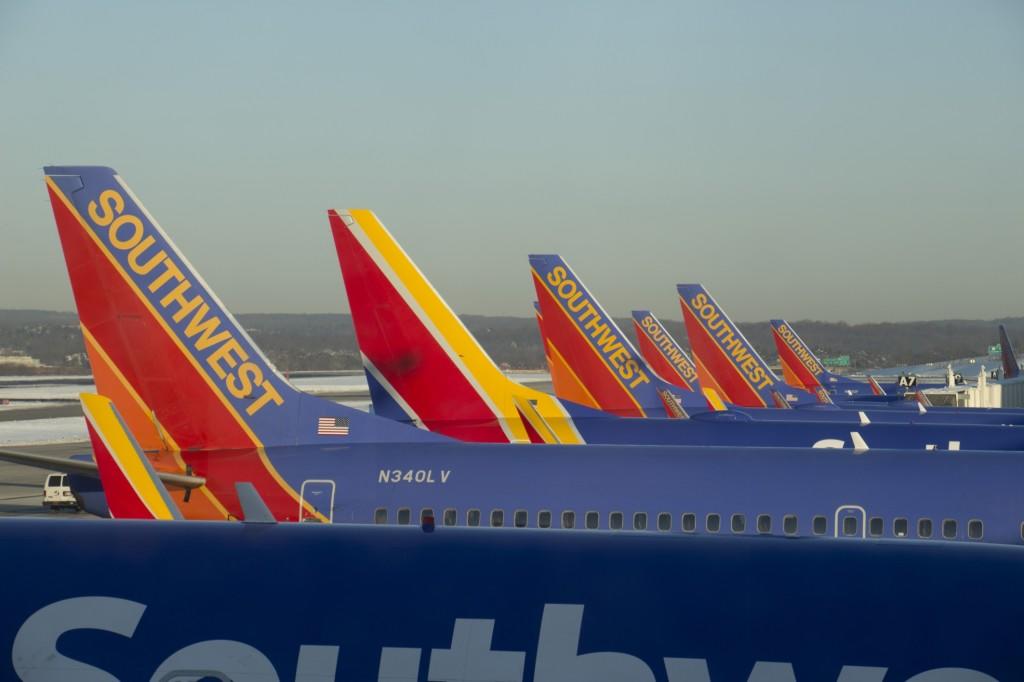Court Continues Complaint Against Southwest Over COVID-19 Related Refunds

A federal court in Pennsylvania is allowing a complaint against Southwest Airlines over Coronavirus-cancelled flights to continue. A flyer sued the carrier over the fact that he was granted an airline credit instead of a refund when the COVID-19 pandemic cancelled the original flight. Although Southwest tried to dismiss the suit, the judge is allowing it to continue.
A Southwest Airlines flyer will be allowed to his lawsuit seeking a refund of his airfare, after it was cancelled due to the COVID-19 pandemic. On March 29, 2021, a judge for the U.S. District Court for the Eastern District of Pennsylvania denied a motion by the Dallas-based carrier to dismiss the suit, allowing it to begin moving towards trial.
Lawsuit Claims “Southwest’s Contract of Carriage Mandates Refunds, not Credits”
The lawsuit was filed against Southwest by Adrian Bombin, a Pennsylvania-based flyer who believes he is due a refund over his cancelled flight. On February 27, 2020 – before the World Health Organization declared the outbreak of COVID-19 a pandemic – Bombin purchased a flight from Baltimore/Washington International Thurgood Marshall Airport (BWI) to Havana Airport (HAV) in Cuba. Roughly a month later, the flyer checked on his trip to discover that his “travel itinerary had been interrupted,” due to a wave of cancellations caused by the spread of the novel Coronavirus.
Days later, the flight to his final destination was cancelled. After calling to request a refund, Bombin alleges the customer service agent denied him, instead offering a “credit voucher subject to expiration.”
In the suit, Bombin states that Southwest’s Contract of Carriage allows for flyers who are aboard a flight which “the carrier cancels or fails to operate” can request a refund of the unused portion of the passenger’s fare. The flyer is seeking unspecified damages as a result of their claim.
In a memorandum requesting case dismissal, Southwest claimed that the lawsuit was invalid across six points. Attorneys representing the airline claim that because Bombin purchased a non-refundable ticket, his suit “ignores the plain language of Southwest’s Contract of Carriage.” In addition, the lawyers argued that the claims against the airline were preempted by the Montreal Convention, the Airline Deregulation Act, and that Southwest’s Contract of Carriage allows for the carrier to opt for credits instead of a refund.
However, federal U.S. District Court judge John M. Gallagher didn’t agree with Southwest’s arguments. In a 16-page opinion, the judge notes that the motion does not provide a compelling reason to release the lawsuit. In particular, the terms and conditions of Southwest.com which waive flyers’ rights to form a class-action lawsuit against the carrier do not apply to this case, and that Bombin has “advanced credible interpretations of the Contract of Carriage.”
Suit Allowed to Continue in Pennsylvania Court
With the judge’s order, the suit will now move towards the pre-trial phase. None of the allegations against Southwest have been proven in court, and the judge has not ruled on the arguments presented in the lawsuit. The case number is 5:20-cv-01883-JMG.























That just shows that legislation is needed. It should be common sense that you get a refund if the airline doesn''t provide the service paid for. Hiding behind one-sided terms and conditions just doesn't cut it.
If Southwest was smart they would toss the guy 1000.00 in cash and be done with it not admitting any liability.
I don't get it - I thought all the U.S. airlines eventually refunded for flights they canceled, and it was just the Canadian ones that were holding out? Is this situation different from the ones where Southwest did provide refunds? It would seem the passenger here is correct per Southwest's CoC: Section 9 (p.41) says that, if a flight is canceled or subject to IRROPS, the airline will either rebook or refund according to Section 4. Section 4 as referenced (p.13) defines refundable and nonrefundable tickets, the latter basically just saying "refunds won't be provided for nonrefundable tickets except as defined in Section 9". The international rules in section 8 referenced at the beginning seem to just deal with death or injury of passengers, passenger delays, or baggage delays or damage as required by the Montreal Convention rather than replacing the conditions of section 9. There's also a subsequent paragraph that deals with schedule changes (which the cancellation of the flight in advance of departure day would be) except that it doesn't deal with a route being suspended, which I assume was the case here since the passenger wasn't rebooked on another flight. (The language is basically just that exact times and connection points aren't guranteed, but I doubt anyone would interpret that as meaning they can get away with not getting you to your destination at all.)